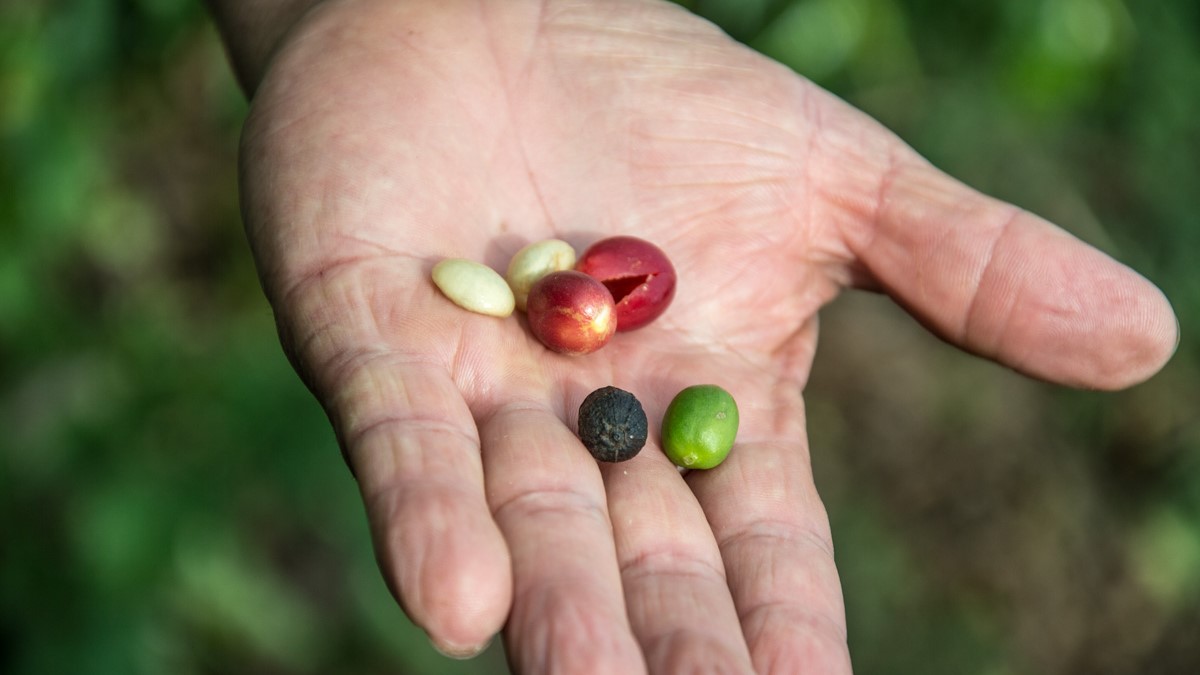Launch of global platform for coffee industry players to transform 40 million tons of biowaste into business
14 May 2024

Geneva, 14 May 2024 – The global coffee industry generates nearly 40 million tons of biowaste each year – that’s about seven times the weight of the Great Pyramid of Giza. Instead of going to the landfill, coffee by-products can be upcycled into a wide range of products, from cosmetics to health foods, bricks and packaging.
Based on these findings – featured in a new report by the International Trade Centre (ITC), the International Coffee Organization (ICO) and the Center for Circular Economy in Coffee (C4CEC) – the Center has announced a global call for membership of coffee sector stakeholders to use circular economy approaches to open up new income and job opportunities. The goal is to gather producers, small businesses, traders, roasters and consumer-facing companies, especially in coffee-producing countries, to tap economic opportunities while addressing critical environmental concerns. The platform is also open to research partners, civil society members, impact investors and international organizations.
The report, “Making a Case for Circular Economy in the Coffee Sector: Insights from the Multi-Stakeholders Working Group on Circular Economy in Coffee", includes findings of a global survey of the ITC Coffee Guide Network’s Working Group on Circular Economy. Lack of actionable knowledge, inadequate regulatory frameworks, and low levels of both investment and public-private collaboration are the top cited challenges to implementing circular economy at scale.
Learn more about these findings and case studies in the upcoming webinar series, “(Re)Generating Value Through Circular Economy in Coffee,” which kicks off on 22 May.
The Center for Circular Economy in Coffee aims to address gaps by providing technical knowledge and establishing a platform for collaboration with a scientific approach. The first precompetitive platform for enhancing circular economy in the coffee sector is supported by a global network of partners: Giuseppe e Pericle Lavazza Foundation, Politecnico di Torino, the University of Gastronomic Sciences in Pollenzo, the United Nations Industrial Development Organization (UNIDO), ICO and ITC.
This collaboration involving the public and private sectors, academia and international organizations emerges from ITC’s Coffee Guide Network Circular Economy Working Group, the ICO Coffee Public Private Task Force, and academic approaches from Slow Foods and Systemic Design.
“Our planet has been crying out for help for many years. We must look for solutions to environmental and economic challenges to provide a better future for the next generations. The circular economy is an excellent and innovative solution that can help farmers, governments, businesses, and consumers work together to create better jobs and income, reduce pollution and fight climate change. The Center for Circular Economy in Coffee was launched as a pre-competitive platform aiming to share experiences, lessons learned and knowledge. The International Coffee Organization is proud to be a founding member of the C4CEC, which aligns with our mission,” said Vanusia Nogueira, Executive Director of the International Coffee Organization.
About the International Coffee Organization - Established by the first International Coffee Agreement in 1962 under the aegis of the United Nations, ICO is the only intergovernmental organization for coffee bringing together exporting and importing governments to strengthen the global coffee sector and promote its sustainable expansion in a market-based environment for the benefit of all actors in the Global Coffee Value Chain (G-CVC). The ICO flagship publication, the Coffee Development Report (CDR), focuses periodically on specific themes of key relevance to the coffee sector. The 2023 edition, to be published in September 2024, will e centred on how to make the coffee economy circular and regenerative.
About the United Nations Industrial Development Organization (UNIDO) – A specialized agency of the United Nations with a mandate to promote, dynamize and accelerate industrial development. It focuses on three areas: ending hunger by helping businesses from farm to fork; stopping climate breakdown by using renewable energy and energy efficiency to reduce industrial greenhouse gas emissions; and supporting sustainable supply chains so that developing country producers get a fair deal and scarce resources are preserved.
For more information about the Center for Circular Economy in Coffee, visit www.circulareconomyincoffee.org or email info@circulareconomyincoffee.org
For more information on UNIDO, please contact: